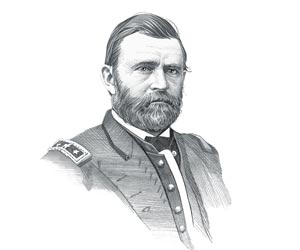|
|
|
|
|
It was a famous victory for the Native American Indians and crushing defeat that led to the deaths of General George Custer and his US Army battalion.
Battle of Little Bighorn Facts for kids Duration: The Battle of Little Bighorn lasted for less than one hour Where was it fought? The location was Little Bighorn River in Montana When was it fought? On June 25, 1876. It was a major conflict in Great Sioux War, also known as the Black Hills War, of 1876 - 1877 Who fought the conflict? The Sioux, Cheyenne and Arapaho warriors, all tribes of the Northern Plains, fought against the United States 7th Cavalry How many fought in the conflict? 1500 Native American Indians against 700 soldiers of the US Army Who were the leaders of the 7th Cavalry? General George Custer was in command. Other US officers involved in the conflict were Marcus Reno, James Calhoun and Frederick Benteen Who were the leaders of the Native Indians? Sitting Bull, Crazy Horse and Chief Gall What caused the conflict? The encroachment of white settlers on Indian land due to the discovery of gold in the Black Hills and the threat of relocation to Indian reservations The Second Treaty of Fort Laramie (1868) had guaranteed the Native American Indians exclusive possession of the Dakota territory. When the Indians refused to sell the land and the US broke the treaty George Custer made the discovery of gold in the Black Hills of Dakota in 1874 The government attempted to buy the lands in 1875, the Native Indians refuse the offer, the Black Hills gold rush begins and hostilities against the natives are ordered by the War Department The conflict was preceded by the Battle of the Rosebud led by General George Crook against a force of Sioux which delayed Crook from joining General George Custer Custer seriously underestimated the size of the Native American Indian forces who totaled 1500 against the US Army of 700. The conflict was referred to as 'Custer's Last Stand'. General Custer also made the assumption that the Native Indians would flee rather than fight Custer abandoned the original plans of a joint attack between himself, Captain Benteen and Major Reno and the US battalions split into three groups The larger force of Native Indians, led by Chief Sitting Bull, attack General Custer and the outnumbered 7th Cavalry. The conflict lasts for under one hour and Custer and his men are all killed. Sitting Bull survived the conflict and died in 1890 during the Ghost Dance Movement. A total of 231 US soldiers died at the Battle of Little Bighorn - all of Custer's 7th Cavalry. The deaths on the battlefield included Custer, his two brothers (Tom Custer and Boston Custer) his brother-in-law (James Calhoun) and his nephew (Autie Reed). General Alfred H. Terry arrive at the scene of the conflict on 26 June 1876 and his 450 soldiers provide reinforcements to Reno and Benteen. They witness the devastation of the battlefield and the aftermath of the conflict. The bodies of the 7th Cavalry had been stripped of their uniforms and their bodies ritually mutilated. Their bodies were buried at the site of the conflict. The body of General George Custer was later re-interred in West Point Cemetery The Little Bighorn Battlefield National Monument (formerly called the Custer Battlefield National Monument) occupies the site of the conflict. The graves of those killed in the conflict are located around a granite monument marking the spot of Custer's "last stand." |
| US American History |
| 1866-1881: Reconstruction Era |
|
|
|
|
|
First Published2016-04-19 | |||
|
Updated 2018-01-01 |
Publisher
Siteseen Limited
| ||
|
|

